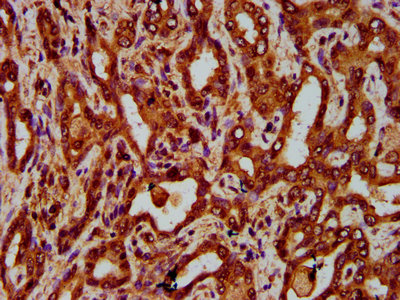Full Product Name
Rabbit anti-Homo sapiens (Human) EGFL7 Polyclonal antibody
Alternative Names
EGF like domain 7 antibody; EGF like domain containing protein 7 antibody; EGF like domain multiple 7 antibody; EGF-like protein 7 antibody; EGFL 7 antibody; EGFL7 antibody; EGFL7_HUMAN antibody; Epidermal growth factor like domain protein 7 antibody; Epidermal growth factor-like protein 7 antibody; MEGF 7 antibody; MEGF7 antibody; MGC111117 antibody; Multiple EGF like domain protein 7 antibody; Multiple EGF-like domains protein 7 antibody; Multiple epidermal growth factor like domain protein 7 antibody; Multiple epidermal growth factor-like domains protein 7 antibody; NEU1 antibody; NEU1 protein antibody; NOTCH4 like protein antibody; NOTCH4-like protein antibody; RP11 251M1.2 antibody; UNQ187/PRO1449 antibody; Vascular endothelial statin antibody; VE statin antibody; VE-statin antibody; ZNEU 1 antibody; ZNEU1 antibody
Immunogen
Recombinant Human Epidermal growth factor-like protein 7 protein (73-198AA)
Immunogen Species
Homo sapiens (Human)
Conjugate
Non-conjugated
The EGFL7 Antibody (Product code: CSB-PA890692LA01HU) is Non-conjugated. For EGFL7 Antibody with conjugates, please check the following table.
Available Conjugates
| Conjugate |
Product Code |
Product Name |
Application |
| HRP |
CSB-PA890692LB01HU |
EGFL7 Antibody, HRP conjugated |
ELISA |
| FITC |
CSB-PA890692LC01HU |
EGFL7 Antibody, FITC conjugated |
|
| Biotin |
CSB-PA890692LD01HU |
EGFL7 Antibody, Biotin conjugated |
ELISA |
Purification Method
>95%, Protein G purified
Concentration
It differs from different batches. Please contact us to confirm it.
Buffer
Preservative: 0.03% Proclin 300
Constituents: 50% Glycerol, 0.01M PBS, pH 7.4
Tested Applications
ELISA, IHC
Recommended Dilution
| Application |
Recommended Dilution |
| IHC |
1:200-1:500 |
Storage
Upon receipt, store at -20°C or -80°C. Avoid repeated freeze.
Lead Time
Basically, we can dispatch the products out in 1-3 working days after receiving your orders. Delivery time maybe differs from different purchasing way or location, please kindly consult your local distributors for specific delivery time.
Usage
For Research Use Only. Not for use in diagnostic or therapeutic procedures.







